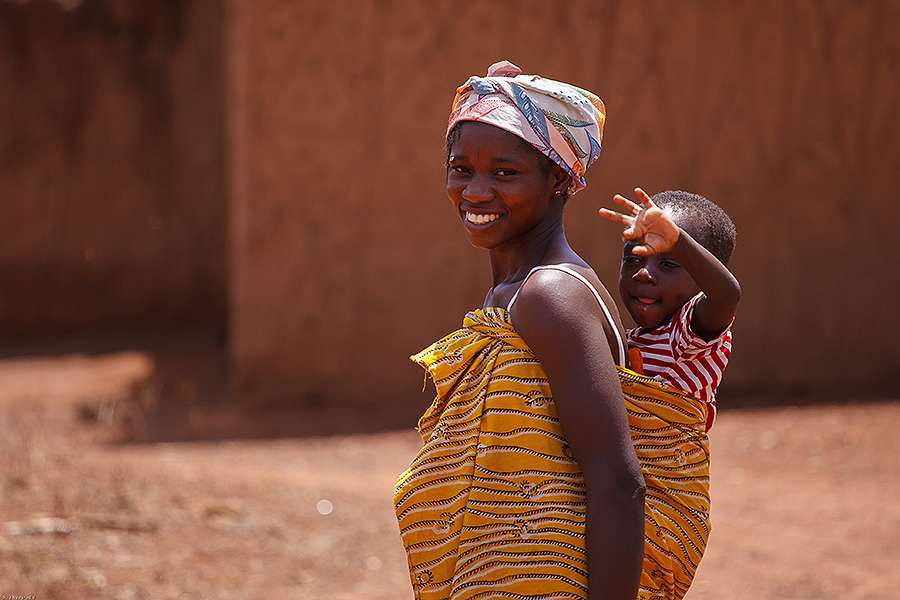Baltimore, Md., Oct 24, 2016 / 03:35 pm (CNA).- Catholic Relief Services says claims that it took part in contraceptive distribution as part of a Congolese aid project were based on a lack of clarity in the project reports.
“Those who are concerned by these allegations can take further reassurance from the 12 bishops on our board, the USCCB and Congolese Bishop’s Conference who all continue to stand by us,” Catholic Relief Services told CNA Oct. 24.
On Oct. 17, the Lepanto Institute website charged that public reports about the Catholic relief agency’s participation in the Project AXxes mother and child health project showed that it received and distributed contraceptives. The project took place in the Democratic Republic of Congo from 2006 to 2010, with funding from the U.S. Agency for International Development. “CRS currently uses an elaborate ongoing review process for our programming, involving bishops on our board and top moral theologians, to ensure that we uphold Catholic teaching in all we do. If we ever do find a problem, we correct it immediately,” the relief agency said in an Oct. 19 response.
CRS said it promoted natural family planning and distributed cycle beads for this purpose. It said the Lepanto Institute did not contact the agency about the Congolese project report. Such a query “would have provided clarification.” Catholic Relief Services said that the Project AXxes reports “do indeed seem to show CRS as receiving contraceptives,” but said the report used “unclear wording” and was prepared by “another organization that did not understand how important absolute clarity on this point is to CRS.”
The agency said another implementing organization of the project, IMA World Health, was responsible for “an alternative mechanism for the training, storage and distribution of contraceptive products,” according to an Oct. 5 letter from Richard Santos, president of IMA World Health and the lead partner in Project AXxes. Santos said it is “plausible that reports are unclear to an outside person,” but the project reports attributing responsible zones to CRS do not mean it provided all services in the area.
“In reality, CRS was very clear with all parties that it would not engage in any activities that were contrary to Catholic teaching and that it would not promote such activities to its local Catholic partners,” Santos said. The Lepanto Institute, citing publically available inventory reports, had charged that Catholic Relief Services stored and dispensed 2.25 million units of abortifacient contraceptives and condoms in the Democratic Republic of Congo as part of Project AXxes.
The project’s final report said a “key objective” was “the provision of high quality, integrated and accessible family planning services,” including provision of “a full complement of family planning methods.” The Lepanto Institute claimed the natural family planning component was a “stepping stone” to other family planning methods, noting the final report’s comment that a post-partum woman is introduced to natural family planning and then at her six month visit is “given options for other methods of family planning — a normal step from natural to modern methods.”
The Lepanto Institute is headed by Michael Hichborn, formerly of the American Life League. It lists no other staff on its website. Fr. Shenan J. Boquet, president of Human Life International, said he found Catholic Relief Services’ explanations of its partners’ errors “insulting” and said its response didn’t address most of the concerns “before turning to attack the motives of CRS critics.”
“Not one single person who knows how these projects work would deny that they entail birth/population control as a matter of course,” Fr. Boquet said. “This one was no different — requiring detailed quarterly reports of the receipt and storage of contraception (including abortifacient methods), as well as measurement of the program’s effectiveness in getting more women to use various methods of artificial birth control.”
He cited previous criticisms of the agency. “Challenged on these reports, CRS routinely misleads the bishops and its supporters, issuing denials that assume great ignorance on the part of the reader as to how these complicated projects occur,” he charged. The Conference of Congolese Bishops in a Sept. 29 letter said it “stands behind the work” of CRS. The relief agency also cited the U.S. Conference of Catholic Bishops’ Administrative Committee’s 2013 statement that Catholic Relief Services’ public critics “do not speak for the Catholic Church” and that the faithful should “exercise caution and consult the CRS website for clarification before endorsing or giving credence to the groups’ critiques.”

